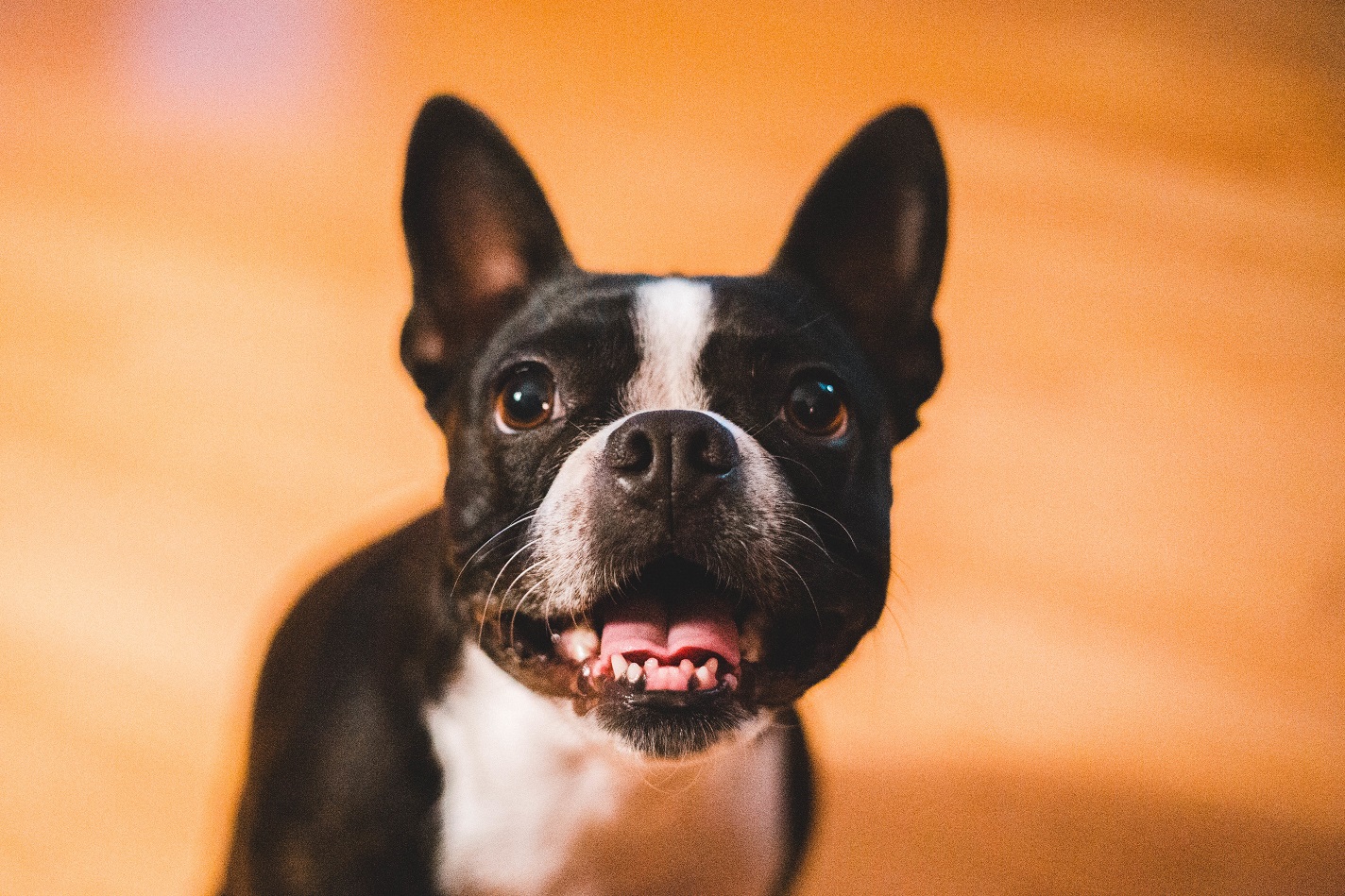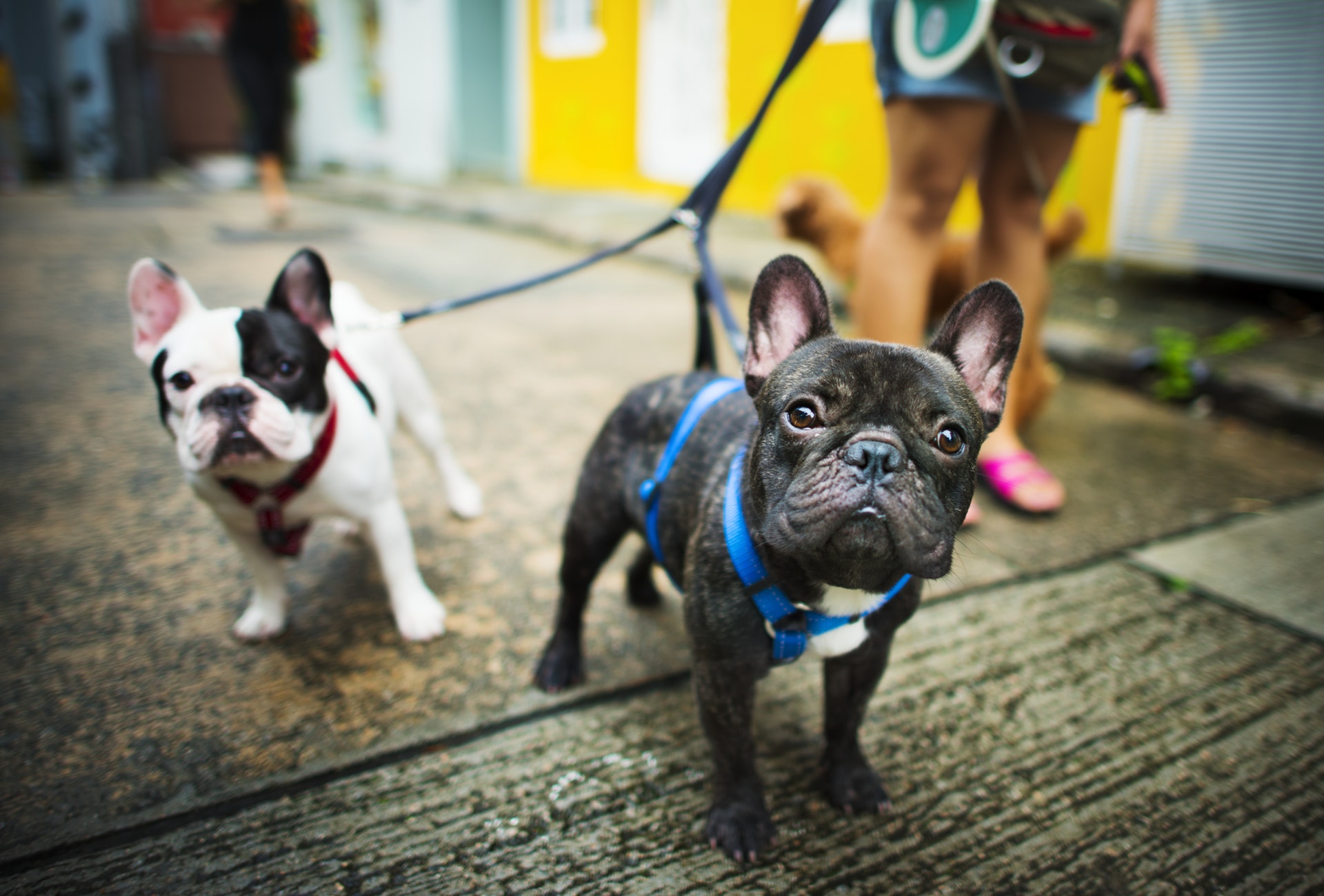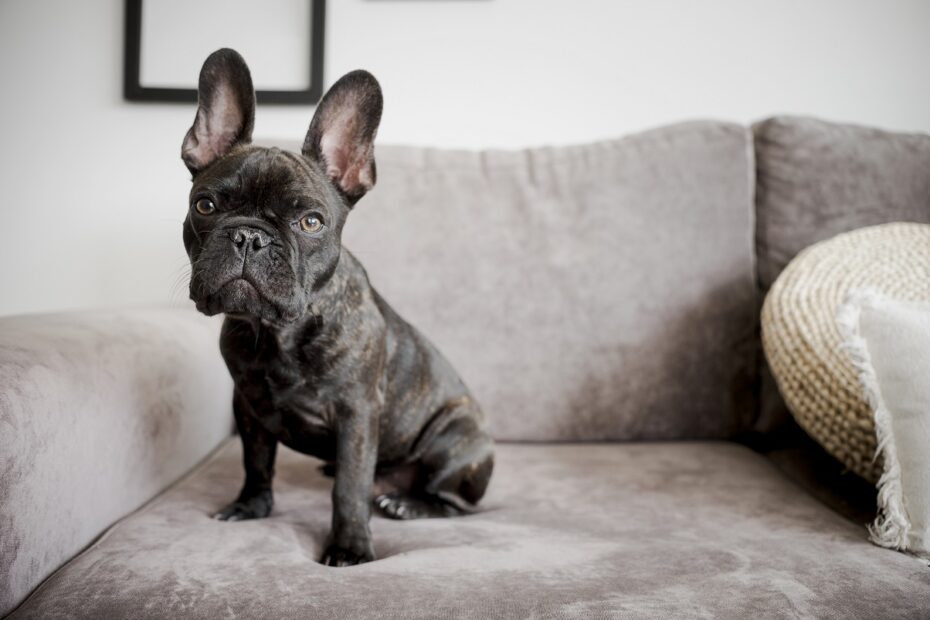An aggressive French Bulldog isn’t a sight you see every day.
Typically speaking, French Bulldogs aren’t an aggressive breed. These friendly, mild-mannered creatures love children, adore their families, and are generally the ideal companion.
But the French Bulldog is a dog, and, like every other dog, it can throw its toys out of the pram in certain circumstances.
If your dog is showing any signs of aggressive behavior, act promptly. The sooner you address the situation, the better chance you have of nipping it in the bud.
French Bulldogs might be small, but they can still cause significant injury to a child or another animal if the aggression is allowed to go unchecked.
So if you’ve noticed your Frenchie suddenly acting like an aggressive pain in the proverbial, then it’s time to step in with some decisive action.
Before we look further into the reasons and solutions for aggression in French Bulldogs, a quick heads-up.
Anxiety, over-excitement, and frustration are some of the biggest motivators for aggression. Fortunately, they can be greatly reduced by helping your dog take charge of their emotions.
A calm, focused dog will naturally be less inclined towards undesirable behaviors than one who’s on an emotional rollercoaster.
This is why before you do anything else, I’d highly recommend checking out the Dog Calming Code from Dan Abdelnoor over at The Online Dog Trainer. (see video below)
During the video, Dan talks specifically about why a focused dog will naturally be less inclined towards unprovoked aggression than one who’s on an emotional rollercoaster. Before revealing a few simple calming exercises to bring your dogs emotions under control.
Watch the video, implement the training Dan recommends, and you should see a huge reduction in your Frenchies’ aggression sooner rather than later.
Here’s the link to take a look: Click Here To Check Out The Dog Calming Code And Discover How To Finally Stop Your Frenchies Unwanted, Scary Aggression… Even If You’ve Tried & Failed Before!
(video will open in a new window)
The Differences Between French Bulldogs and Other Dog Breeds
When you think of French Bulldogs, you don’t automatically think ‘aggressive.’
Cute, yes…
…Perky, definitely.
…Friendly, absolutely.
But aggressive? Never.
But no matter how integral they are to the family, French Bulldogs are still dogs. And in the right circumstances, any dog, regardless of breed, can act out.
Most of the time, this comes from improper training (or no training at all) and poor socialization.
For all their mild good manners, French Bulldogs can be headstrong and demanding. They like to be the center of attention; if they’re not, they can become jealous, anxious, or domineering.
If you’re particularly unlucky, they might become all three.
Early socialization is key to future success. A Frenchie who isn’t exposed to a wide variety of people, pets, and environments from a young age won’t grow into the happy, well-adjusted pooch they’re capable of being.
Ultimately, dogs aren’t social butterflies by birthright: if you don’t teach them how to interact with the world, they’ll never learn.
Training in other areas is also crucial. Sometimes, people neglect to train smaller dogs in the belief they aren’t capable of the same dangerous behaviors as larger breeds.
That’s a mistake.
Just because a French Bulldog can’t inflect the same kind of injuries as an English Bulldog doesn’t mean undesirable behaviors should be overlooked.
If you want to avoid your Frenchie becoming the kind of dog people cross the street to avoid, teaching them basic obedience is crucial.
Ultimately, Frenchies are small dogs with huge personalities. Those personalities are a big part of why we love them.
But if those personalities aren’t molded correctly, you’re looking at a huge problem waiting to happen.

Why Do French Bulldogs Get Aggressive?
French Bulldogs aren’t known for uncontrolled aggression. But like any breed, they can display unwanted behaviors in certain circumstances.
To address unwanted aggression in your Frenchie, you’ll first need to figure out the reason for the behavior. Once you do that, you can match the solution to the cause.
Some of the most common reasons for aggression include…
Pain
One of the most overlooked causes of aggression is a health condition or injury. If your Frenchie has only recently started displaying undesirable behavior, they might well be lashing out in pain.
If a medical complaint is to blame for your Frenchie’s aggression. You might have noticed other unusual behaviors such as lethargy, a change in eating or sleeping patterns, weight loss, alopecia, or even convulsions.
Older dogs can also experience arthritis, vision and hearing loss, or cognitive problems, all of which can cause confusion and out-of-character behaviors.
Fear
If your Frenchie has had a frightening encounter, has experienced abuse in the past, or has developed negative associations with certain things. They may be acting aggressively out of fear.
When a dog perceives something as a threat, it’ll often revert to flight or fight mode. If they’re unable to escape the thing that’s frightening them, they’ll resort to aggression in an attempt to make it go away.
Puppies that haven’t been socialized properly tend to be most vulnerable to developing fears and phobias as they grow older.
Separation Anxiety
Frenchies love being the center of attention. They crave companionship, and if they don’t get it, they can become lonely, anxious, and aggressive.
If you’re away from home for long stretches of the day, your little Frenchie may be feeling stressed.
And once a dog becomes stressed, you can say hello to all kinds of destructive, aggressive behaviors.
Territorial Instincts
Frenchie’s may seem cute and cuddly, but like all dogs, they’re capable of some pretty strong emotions – territorialism being one of them.
Usually, this extends to barking and lunging at anyone who dares to invade their personal kingdom.
Sometimes, they can get as territorial over their owners as their yards. If another dog or person approaches you, they might growl or display other forms of aggression to let them know you’re theirs.

Frustration
If a dog sees something they want but can’t get, they can get frustrated.
When that happens, they’ll often take out their frustrations on the nearest available target. Usually, this will either be other dogs in the household or family members.
Adolescence
When a Frenchie hits puberty, all hell can break loose.
Your previously happy, bouncy pup can get moody, unpredictable, and prone to temper tantrums.
Male Frenchies will start to see other unneutered male dogs as competition, and even females can start getting testy.
Boredom
A wise dog trainer once said that a tired dog is a happy dog. They weren’t wrong.
Despite their small size, Frenchies still need plenty of physical and mental stimulation. Without it, they can become bored, frustrated, and prone to acting out.
Remember, if you don’t provide your dog with appropriate outlets for their energy. That energy will come to the surface in ways you hadn’t expected… and really don’t want.
Dominance
Frenchies like to be the boss. Although males dogs are the worst offenders, females can crave leadership status too.
Often, owners will be blissfully unaware of the trait until they introduce a new dog into the home. Once they do, their previously placid, well mannered Frenchie will start growling, snapping, and doing anything it can to assert its dominance.
Stress
Dogs are creatures of habit. They thrive with a routine. If they had their way, every day would follow the exact same pattern.
But life has a way of disturbing even the most carefully laid plans.
If your working schedule has changed, if you’ve moved house, or if you’ve welcomed a new baby or pet into your home, your little Frenchie might be feeling off-balance.
Once a dog becomes stressed and anxious, it can start lashing out in confusion and frustration.
Resource Guarding
If a Frenchie (or any other breed, for that matter) decides that a toy, a bone, a bowl of food, or even a person is very, very special. They can get very protective of it.
And if anyone tries to get in between them and their prized possession, they’ll make their feelings known in no uncertain way.
Related Post: How To Stop Food Aggression In Dogs

How to Stop a French Bulldog from Being Aggressive
Aggression isn’t the kind of thing that goes away of its own accord. Without prompt intervention, even minor displays of aggression can quickly escalate into something more serious… and dangerous.
The first step in tackling the problem is to work out its cause.
Not all cases of aggression have the same explanation. And once you work out the reason for your own dog’s aggression, you can tailor the solution accordingly.
While you’re figuring out the cause of your dog’s behavior, there’s one technique you can start working on straight away: emotional control.
Regardless of the motivation for aggression, introducing any new training and behavioral modification techniques is going to be much, much easier if your dog is calm and focused.
The methods Dan teaches in The Dog Calming Code will teach your dog how to take control of their emotions. They’ll also do wonders at demonstrating your leadership status.
The sooner you introduce them, the sooner you’ll have your dog’s behavior under control.
In addition to the exercises, the following tried and tested methods can all make a big difference to your dog’s behavior…
Book An Appointment With Your Vet
If you have any reason to think a medical problem is to blame for the deterioration in your dog’s behavior, don’t waste any time in getting them to a vet.
Dogs tend to keep their aches and pains to themselves for as long as they can. If those pains are now surfacing in behavioral changes, you need to take action without delay.
Be sure to share any physical or behavioral changes you’ve noticed to help your vet reach a diagnosis.
If a medical problem is identified, your vet will discuss treatment options with you. If they believe the aggression is rooted in anxiety instead, they may recommend anti-anxiety medication to assist on a short term basis.
Socialize Them
A puppy goes through two fear windows: the first comes at about 2-3 months old, and the second comes at around 5-6 months old.
During these periods, your dog might start reacting anxiously and even aggressively around people and things they previously took in their stride.
While forcing your dog into situations isn’t a good idea, it’s important to socialize them properly during these periods to prevent any fears from taking hold.
Introduce them to new environments, new people, and new animals.
Teach them the world isn’t the big, scary place they think it is. Keep things fun. Carry treats with you and give them lots of praise and reassurance whenever they seem a little unsure.
Although puppyhood is the ideal time for socialization, a dog is never too old to learn some new tricks.
Related Post: How To Socialize An Aggressive Dog – A Step By Step Guide

Avoid Their Triggers
Canine aggression is often a sign of anxiety. Over time, you can reduce their fears through counterconditioning and desensitization techniques.
For now, reduce their exposure to triggering situations as much as possible.
If they’re alarmed by other dogs, avoid walking them in busy areas. If loud noises scare them, keep the house as quiet and calm as possible.
You won’t need to treat your dog with kid gloves forever. But while you’re working towards a long term solution for their anxieties. Reduce the risk of any incidents by keeping their environment as calm and controlled as possible.
Be A Leader
Frenchies can be domineering. Most of the time, they’ll try to assert their dominance over other dogs. But sometimes, they’ll try to assert it over you.
If that happens, you need to establish your status at the top of the hierarchy. If your dog acknowledges and respects you as their leader, they’ll naturally follow your direction.
So first things first, set ground rules.
If you can establish a foundation of boundaries and obedience, you’ll immediately be one step closer to a calm, well-behaved dog.
As well as this, remember to be consistent with training. If you correct your dog’s behavior one day but overlook it the next, you’ll lose respect.
More than anything else, set a good example. If your dog tries to assert its dominance through aggression, you’ll achieve nothing by doing the same.
Remember, aggression + aggression = more aggression.
So stay calm, confident, and consistent. The moment you lose control, the moment you take a giant step back in your training endeavors.
Wear Them Out
A dog who isn’t provided with outlets for its energy will look for other ways to let off steam.
If you’re lucky, this might mean digging a new hole in the garden. If you’re not, it could mean barking, snapping, and growling.
Even though a Frenchie is small, they still need plenty of exercise. At a minimum, aim for an hour of combined exercise a day.
Walks are crucial, but games are also a great way of burning off some energy and having fun in the process.
While we’re on the subject of exercise, don’t overlook the importance of exercising their brains. Frenchies are intelligent breeds and need plenty of mental stimulation to stay happy.
A few interactive toys and treat dispensers can go a long way to keeping them challenged and entertained.
Try Calming Techniques
If your dog is anxious or stressed, they can lash out in frustration.
Look for ways to calm them down and soothe their frazzled nerves. Calming pheromones, relaxing music, and the methods taught by Dan in The Dog Calming Code can all go a long way to dialing down tension and introducing some much-needed calm.
Final Thoughts
Canine aggression is always worrying, even in a breed as small as a French Bulldog.
There isn’t a magic bullet that’s going to solve the problem overnight. But don’t despair. With the proper strategy, very few problems are insurmountable.
By keeping calm, consistent, and patient, you can address the root cause of the aggression and move forward in a positive way.

